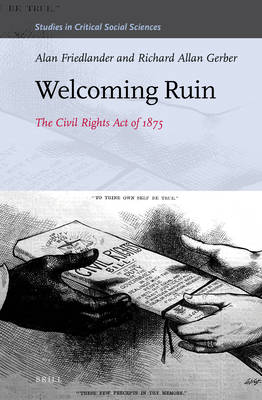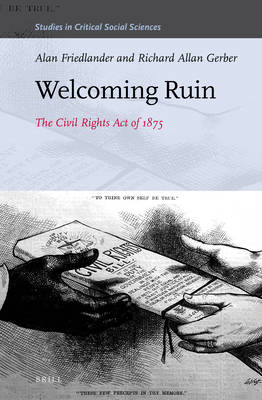
- Afhalen na 1 uur in een winkel met voorraad
- Gratis thuislevering in België vanaf € 30
- Ruim aanbod met 7 miljoen producten
- Afhalen na 1 uur in een winkel met voorraad
- Gratis thuislevering in België vanaf € 30
- Ruim aanbod met 7 miljoen producten
Zoeken
€ 371,95
+ 743 punten
Uitvoering
Omschrijving
This Civil Rights Act of March 1, 1875 banned racial discrimination in public accommodations. This first full study demonstrates that the Republicans enacted it believed that civil equality under the law would produce social order in the former rebel South.
Specificaties
Betrokkenen
- Auteur(s):
- Uitgeverij:
Inhoud
- Aantal bladzijden:
- 700
- Taal:
- Engels
- Reeks:
- Reeksnummer:
- nr. 133
Eigenschappen
- Productcode (EAN):
- 9789004359147
- Verschijningsdatum:
- 29/11/2018
- Uitvoering:
- Hardcover
- Formaat:
- Genaaid
- Afmetingen:
- 160 mm x 241 mm
- Gewicht:
- 1088 g

Alleen bij Standaard Boekhandel
+ 743 punten op je klantenkaart van Standaard Boekhandel
Beoordelingen
We publiceren alleen reviews die voldoen aan de voorwaarden voor reviews. Bekijk onze voorwaarden voor reviews.








